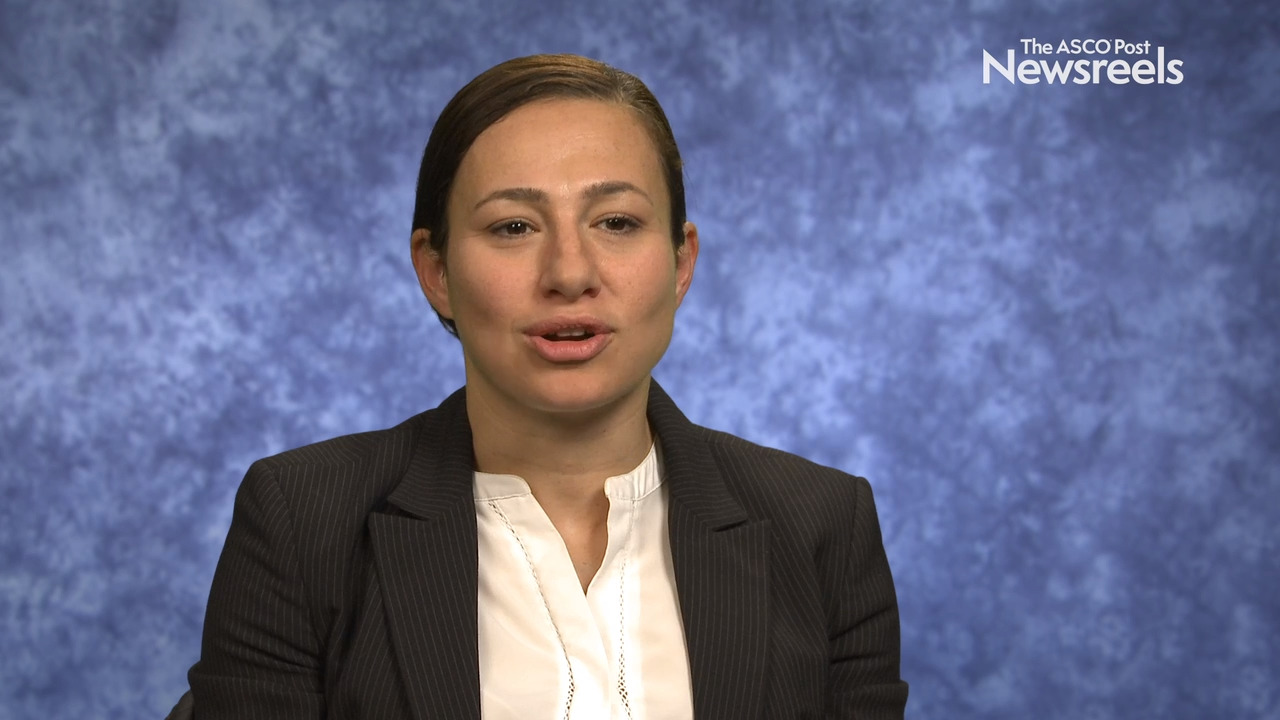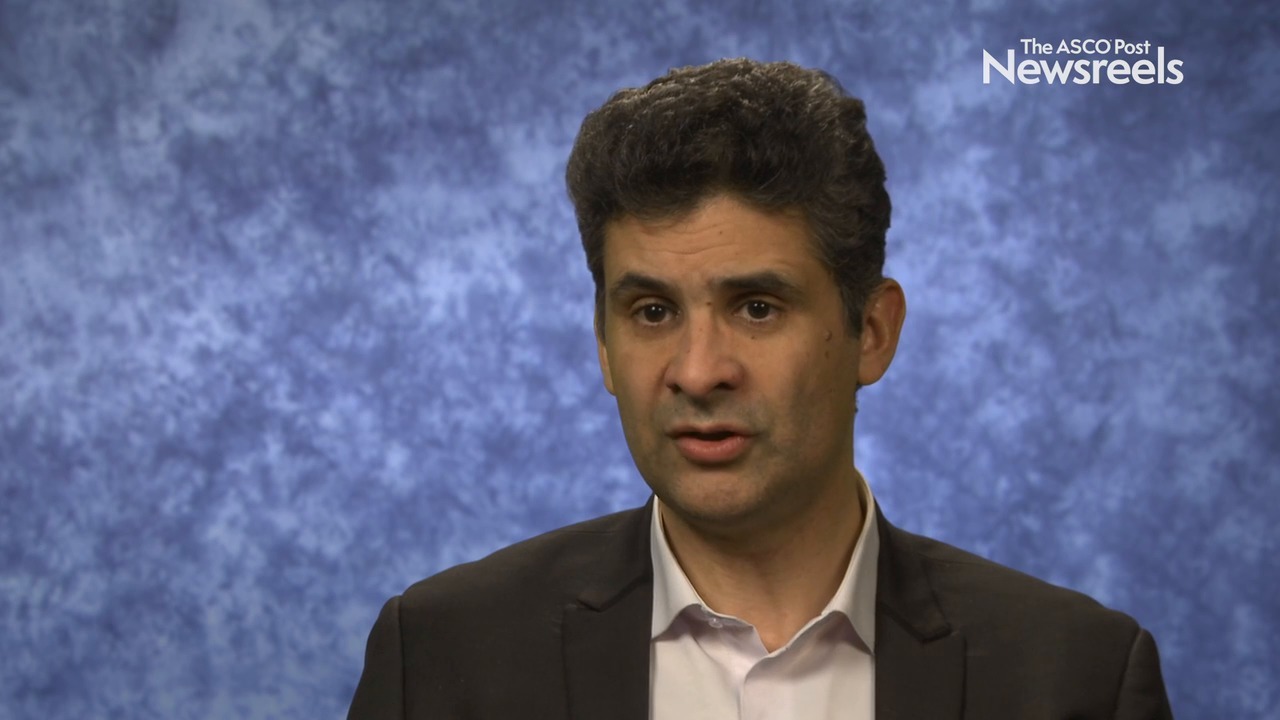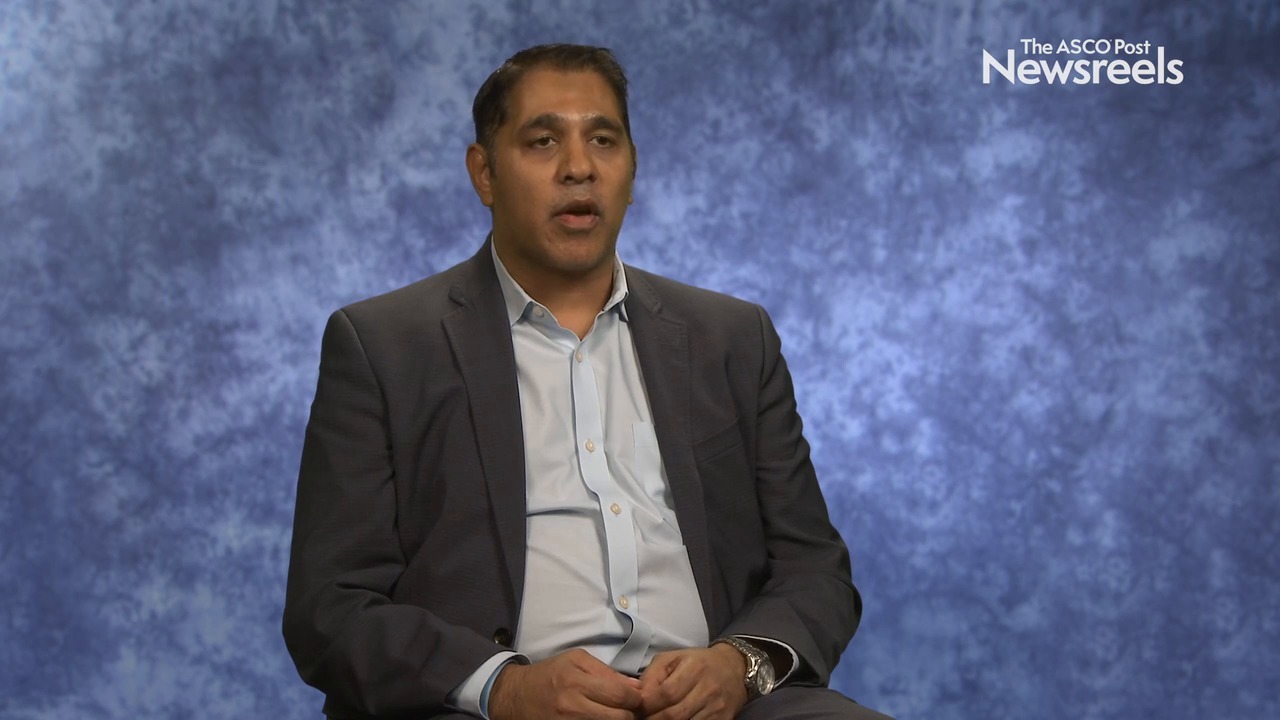Related Videos
Rana R. McKay, MD, on Renal Cell Carcinoma: Results From a Trial on Atezolizumab and Bevacizumab
Rana R. McKay, MD, of the University of California, San Diego, discusses phase II study findings on atezolizumab and bevacizumab in non–clear cell renal cell carcinoma and clear cell renal cell carcinoma with sarcomatoid differentiation (Abstract 548).
Karim Fizazi, MD, PhD, on Prostate Cancer: Results From the ARAMIS Trial on Darolutamide
Sumit K. Subudhi, MD, PhD, on Prostate Cancer: Results From the CheckMate 650 Trial on Nivolumab and Ipilimumab
Sumit K. Subudhi, MD, PhD, of The University of Texas MD Anderson Cancer Center, discusses the initial results from a phase II study of nivolumab plus ipilimumab in the treatment of metastatic castration-resistant prostate cancer (Abstract 142).
Brian I. Rini, MD, on Renal Cell Carcinoma: Results From the TIVO-3 Trial on Tivozanib vs Sorafenib
Brian I. Rini, MD, of the Cleveland Clinic Taussig Cancer Institute, discusses phase III findings on a comparison of tivozanib and sorafenib in patients with refractory advanced renal cell carcinoma (Abstract 541).
Howard I. Scher, MD, on Prostate Cancer: Circulating Tumor Cells as a Surrogate Endpoint for Survival
Howard I. Scher, MD, of Memorial Sloan Kettering Cancer Center, discusses circulating tumor cell number as a transitional surrogate endpoint for survival in phase II trials on metastatic castration-resistant prostate cancer (Abstract 143).





